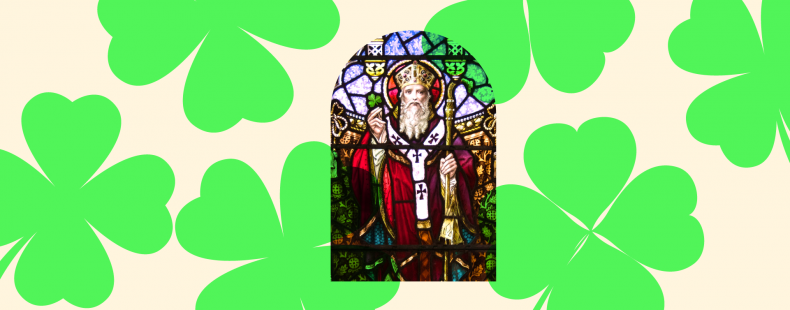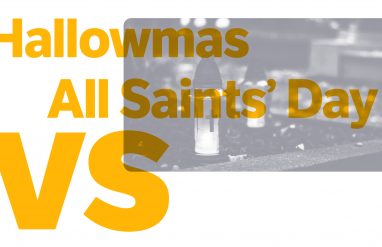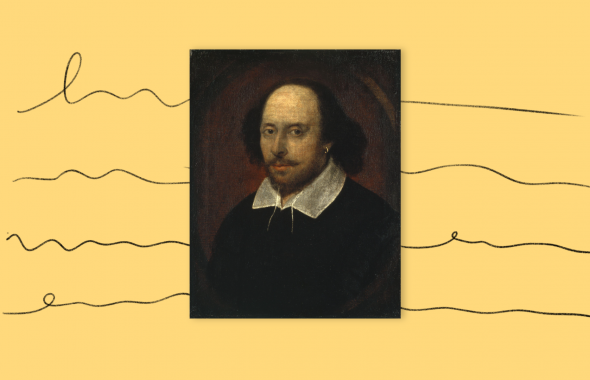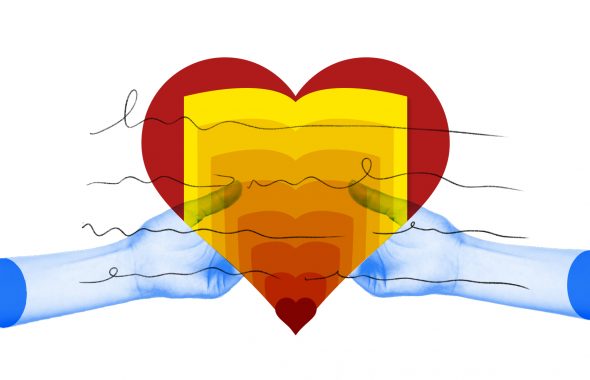March 17 marks the annual celebration of Saint Patrick’s Day, or Lá Fhéile Pádraig in Irish. The holiday honors its fifth-century namesake, Saint Patrick, Ireland’s shamrock-loving patron saint, who is believed to have died on this date in 461 CE.
For those curious about the origin of the holiday, the basic facts we have gathered here—from the lowdown on Saint Patrick to the official language spoken in Ireland—will be both helpful … and surprising!
These days, the holiday is observed all over the world to celebrate Irish cultural heritage, which is ironic considering Patrick himself wasn’t Irish. Nor was Patrick his real name.
First of all, who was Saint Patrick?
Allegedly born Maewyn Succat in Britain, Saint Patrick’s personal history is a colorful mix of legend and fact. According to legend, Maewyn Succat chose the Latin name Patricius, or Patrick in English and Pádraig in Irish.
In his autobiographical work, Confessio, or The Confession of Saint Patrick, Patrick explains how he was enslaved by Irish slave traders for several years before eventually escaping and fleeing back home to Britain. Patrick would later return to Ireland as a missionary, and he is credited with helping introduce Christianity to Ireland. (He famously used the shamrock, a long-running symbol of Ireland, as a metaphor for the Holy Trinity.)
Patrick was also famous for driving out all the snakes from Ireland, although it’s generally understood that this was a figurative allusion to the Druids; Ireland likely never had snakes. Poetry was among his cultural contributions as well, and Saint Patrick is credited with penning the prayer of protection known as The Deer’s Cry.
Saint Patrick has been honored on March 17 in Ireland since around the 900s. The restrictions of Lent (such as the prohibition of meat consumption) were lifted so families could attend church in the morning and feast in the afternoon.
What language is spoken in Ireland?
The Irish language is part of the Celtic family of languages, which also includes Scottish Gaelic, Welsh, and Breton, spoken in the Scottish Highlands, Wales, and Brittany respectively. An Caighdeán Oifigiúil is the official standard for Irish language and grammar, although, interestingly, the Irish language has no standard pronunciation. Because of that, the phonology of the language varies across speakers of Irish and across its sister languages: Scottish Gaelic and Manx.
Although some may be tempted to call the Irish language Gaelic, this distinction would not be correct. The term Irish Gaelic is sometimes used but generally outside of Ireland itself.
Irish is roughly broken down into somewhat distinct dialect areas: Munster to the south, Connacht in the west of Ireland, and Ulster in Northern Ireland. Each dialect varies in vocabulary, pronunciation, and grammar; however, there’s a mutual intelligibility among speakers of different Gaelic dialects.
As a result of the Great Famine in the 1800s, the Irish language lost a great number of its speakers to death and poverty-driven emigration. The forces of British colonialism and American imperialism also fueled the dominance of English.
The Gaelic revival movement of the late 1800s encouraged the learning and use of Irish as a language throughout Ireland. According to the 2022 Irish census, there are just under 72,000 people who claim to use Irish daily and around 1.87 million people who said they can speak the language. And you can bet they’ll all be wearing green—or at least pinning a fresh shamrock on their lapels—on Saint Patrick’s Day.














